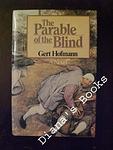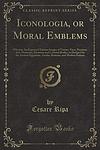The Greatest "Allegorical, Social & Cultural Fiction, Fiction, Historical fiction" Books Since 1900
Click to learn how this list is calculated.
This list represents a comprehensive and trusted collection of the greatest books. Developed through a specialized algorithm, it brings together 305 'best of' book lists to form a definitive guide to the world's most acclaimed books. For those interested in how these books are chosen, additional details can be found on the rankings page.
Genres
Allegorical books are a genre of literature that use symbolic characters, events, and settings to convey a deeper meaning or message. These stories often have a moral or philosophical lesson that is meant to be interpreted by the reader. Allegories can be found in many different types of literature, including novels, short stories, and poetry. They are a powerful tool for exploring complex ideas and emotions, and can be used to comment on social, political, or religious issues. Overall, allegorical books are a thought-provoking and engaging genre that challenges readers to think critically and reflect on the world around them.
Social & Cultural Fiction is a literary category that encompasses novels and stories that delve into the complexities of society and culture, exploring themes such as class, race, gender, and identity within specific social contexts. These narratives often provide a lens through which readers can examine the intricacies of human relationships and the impact of cultural norms and societal structures on individuals and communities. By offering a fictional yet reflective portrayal of real-world social dynamics, this genre invites readers to gain a deeper understanding of the diverse experiences that shape our world. Authors in this category frequently use their characters and settings to comment on contemporary issues, challenge prevailing ideologies, and provoke thought about the possibility of social change, making Social & Cultural Fiction a powerful tool for empathy and a mirror for the ever-evolving human condition.
Historical fiction is a genre of literature that combines fictional stories with real historical events, settings, and characters. These books often take place in a specific time period and are based on research and factual information, but also include imaginative elements to create a compelling narrative. Historical fiction allows readers to experience the past in a unique and engaging way, while also providing insight into the social, cultural, and political issues of the time.
Countries
Date Range
Reading Statistics
Click the button below to see how many of these books you've read!
Download
If you're interested in downloading this list as a CSV file for use in a spreadsheet application, you can easily do so by clicking the button below. Please note that to ensure a manageable file size and faster download, the CSV will include details for only the first 500 books.
Download-
1. Midnight's Children by Salman Rushdie
The novel tells the story of Saleem Sinai, who was born at the exact moment when India gained its independence. As a result, he shares a mystical connection with other children born at the same time, all of whom possess unique, magical abilities. As Saleem grows up, his life mirrors the political and cultural changes happening in his country, from the partition of India and Pakistan, to the Bangladesh War of Independence. The story is a blend of historical fiction and magical realism, exploring themes of identity, fate, and the power of storytelling.
The 38th Greatest Book of All Time -
2. The Magic Mountain by Thomas Mann
In this novel, the protagonist, a young, ordinary man, visits his cousin at a tuberculosis sanatorium in the Swiss Alps. Intending to stay for only a few weeks, he ends up remaining there for seven years, becoming a patient himself. The book explores his experiences and relationships with other patients and staff, delving into philosophical discussions on life, time, and the nature of disease. It also provides a vivid portrayal of the European society and intellectual life on the eve of World War I.
The 43rd Greatest Book of All Time -
3. Death of Virgil by Hermann Broch
The novel explores the final hours of the Roman poet Virgil, who, while on his deathbed, contemplates the value and impact of his life's work, particularly his unfinished epic, the Aeneid. The narrative is a complex, stream-of-consciousness meditation on art, life, and death, with Virgil wrestling with his desire to burn his epic and the emperor's command to preserve it. The book delves into themes of the meaning of human existence, the role of art in society, and the clash between the individual's inner world and the external world.
The 348th Greatest Book of All Time -
4. The Power and the Glory by Graham Greene
The novel is set during the Mexican Revolution, focusing on a whisky priest who is on the run from the authorities who have outlawed Catholicism. The priest, who is flawed and sinful, travels across the country to evade capture, minister to the faithful, and find a way to repent for his sins. Despite his moral failings, the priest's compassion and commitment to his faith make him a symbol of hope and resilience in the face of oppression. The book explores themes of faith, redemption, and the human struggle with sin.
The 350th Greatest Book of All Time -
5. The Painted Bird by Jerzy Kosinski
"The Painted Bird" is a dark and harrowing novel set in Eastern Europe during World War II. The story follows a young, unnamed boy of unknown ethnicity who is sent by his parents to live in a remote village for safety. However, he is instead subjected to brutal violence, abuse, and superstition by the superstitious peasants. The book explores themes of survival, human cruelty, and the loss of innocence in the face of war and hatred.
The 1374th Greatest Book of All Time -
6. The Cathedral by Oles Honchar
"The Cathedral" is a historical novel that tells the story of the ancient city of Kyiv, Ukraine and its people from the 17th century to the 20th century. The narrative focuses on the city's cathedral, which serves as a symbol of the city's spirit and resilience, and the various characters who are connected to it throughout the centuries. The novel explores themes of national identity, the struggle for independence, and the impact of war and political upheaval on individuals and communities.
The 2443rd Greatest Book of All Time -
7. The Parable of the Blind by Gert Hofmann
"The Parable of the Blind" is a darkly comedic novel that follows six blind men who are hired to pose as models for a famous painter's depiction of a biblical parable. As they journey to the painter's studio, they struggle with their dependence on each other and the outside world, grappling with the limitations and challenges of their blindness. The narrative explores themes of human vulnerability, the nature of perception, and the absurdity of existence.
The 3172nd Greatest Book of All Time -
8. Fontamara by Ignazio Silone
This novel is set in a small, impoverished village in Italy during the Fascist regime. It tells the story of the villagers, known as "Fontamaresi," who are struggling to survive under the oppressive government policies and the exploitation by the local elite. The narrative focuses on their attempts to resist and fight back against the injustices they face, despite the overwhelming odds. Through the eyes of its characters, the book explores themes of poverty, oppression, resistance, and the human spirit's resilience. It is a poignant critique of Fascism and a testament to the strength of community and solidarity in the face of tyranny.
The 3237th Greatest Book of All Time -
9. Chevengur by Andrey Platonov
The book is a complex and philosophical tale set in the aftermath of the Russian Revolution, exploring the lives of various characters in a small town as they grapple with the utopian ideals of communism and the harsh realities of its implementation. Through the experiences of these characters, including a young revolutionary and a disenchanted wanderer, the narrative delves into themes of human nature, societal transformation, and the search for meaning in a world undergoing radical change. The story's blend of surrealism, poetic language, and political commentary creates a unique and often disquieting examination of the Soviet dream and the disillusionment that followed its pursuit.
The 3652nd Greatest Book of All Time -
10. Le Pauvre Christ De Bomba by Mongo Beti
"Le Pauvre Christ De Bomba" is a satirical novel set in colonial Cameroon, highlighting the cultural clash between the indigenous people and the French colonizers. The story follows the life of a young boy named Christophe, who is sent to a Catholic mission school and becomes the subject of ridicule due to his poverty and African heritage. Through Christophe's experiences, the author exposes the hypocrisy and injustices of the colonial system, shedding light on the destructive effects of colonization on African society.
The 3791st Greatest Book of All Time -
11. The Greek Passion by Nikos Kazantzakis
The novel explores the lives of villagers in a small Greek community who are preparing for their annual Passion Play, a reenactment of the events leading up to Christ's crucifixion. As the villagers immerse themselves in their roles, the lines between their characters and their personal lives begin to blur, leading to a profound transformation within the community. The man chosen to play Jesus becomes deeply inspired by his role, striving to live out the teachings of Christ in the real world. This commitment to living a life of compassion and sacrifice brings him into conflict with both the church and the societal norms of the village, culminating in a powerful examination of faith, identity, and the human struggle for meaning and redemption.
The 7168th Greatest Book of All Time -
12. The Flounder by Günter Grass
The book is a rich tapestry of historical fiction and magical realism, weaving together the lives of a talking fish, a series of women cooks, and the men in their lives over several centuries. It explores themes of feminism, power, and the evolution of culinary arts, with the titular flounder serving as a guide and witness to the unfolding human drama. The narrative spans from the Stone Age to the modern era, reflecting on the changing roles and relationships between men and women, as well as the impact of these dynamics on culture and society. The novel is a blend of myth, satire, and allegory, presenting a unique perspective on the history of humanity through the lens of food and gender politics.
The 7878th Greatest Book of All Time
Reading Statistics
Click the button below to see how many of these books you've read!
Download
If you're interested in downloading this list as a CSV file for use in a spreadsheet application, you can easily do so by clicking the button below. Please note that to ensure a manageable file size and faster download, the CSV will include details for only the first 500 books.
Download









